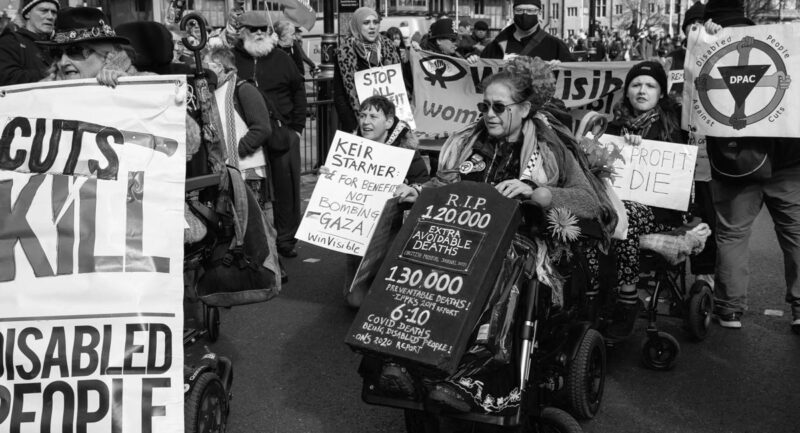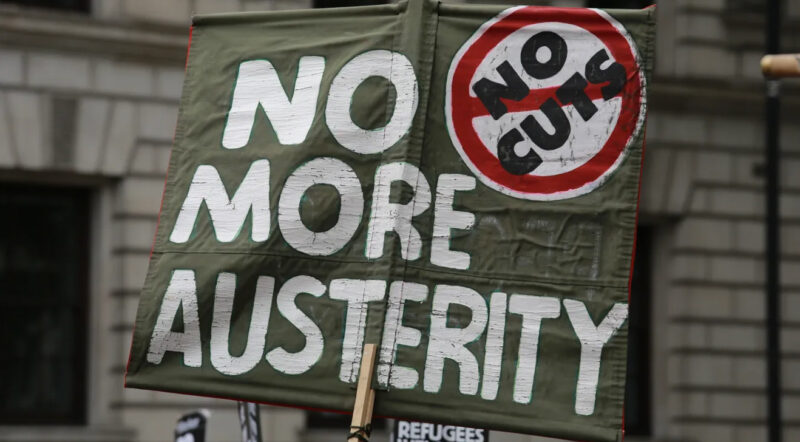Spanish general strike unites millions against austerity
 The 29 March one-day general strike witnessed massive participation across Spain as millions rallied to the unions’ call to resist government attacks on fundamental workplace rights. Kady Tait reports
The 29 March one-day general strike witnessed massive participation across Spain as millions rallied to the unions’ call to resist government attacks on fundamental workplace rights. Kady Tait reports
After three years of vicious austerity, 5.3 million people, a quarter of the workforce, and 50 per cent of young people are unemployed. Spain has entered a second recession in the same period, one that can only deepen as a result of these massive cuts. Against this backdrop, popular anger exploded on the streets of Spain’s major cities – with up to a million people occupying Madrid’s Plaza del Sol.
Workers, unemployed and young people were determined to voice their opposition to further and more savage cuts. The strike came on right-wing Prime Minister Mariano Rajoy’s 100th day in power – the day before his People’s Party (PP) announced £22.5 billion worth of cuts to jobs, wages and public services.
In addition, “reforms” to labour regulations shift the balance of power decisively in favour of the bosses – making it easier to sack workers, cut wages and worsen employment conditions. These reforms are the opening salvo in a campaign to demolish Spain’s welfare state and the four million jobs reliant on it.
The strike saw the biggest turnout for many years. The leader of the UGT union federation put average participation at 77 per cent, rising to 97 per cent in industry with practically all workers at Nissan, Renault, SEAT, Ford and Volkswagen car factories out. 85 per cent of food workers were striking, backed up by early-morning flying pickets that blockaded wholesale markets, transport depots and drove off police protecting scab workers.
After a huge grassroots mobilisation from ordinary union members, reinforced by students and unemployed workers’ organisations, the strike reached deep into most sectors of the economy. Electricity use was down 20 per cent and 30 per cent of private bank employees joined the action. Students organised to block major roads into Madrid and Barcelona, strengthening the overall impact of the strike.
Friday’s budget was delayed to avoid antagonising voters during regional elections, but voters knew what was coming: the PP saw its vote drop between 5-10 per cent and in some places it was kicked into third place.
The cuts are nothing short of devastating: £22.5 billion come on top of the £15 billion slashed in December’s emergency budget – amounting to a further 17 per cent cut to each department. Public sector workers who still have their jobs will see their wages frozen, piling on the pain from previous pay cuts and inflation which are demolishing their purchasing-power. Gas and electricity bills will rise 5 per cent and 7 per cent – the sole aim of this budget is to make ordinary Spaniards pay for a crisis they didn’t cause.
While Thursday’s mass protests, and the violent clashes with police seen in southern cities, reflect the deep anger against the PP’s pro-market, pro-banker and pro-rich policies, there is also huge anger against the EU and ‘international bond markets’, which many people are starting to recognise as the real puppet-masters pulling Rajoy’s strings.
Many Spaniards are questioning why their country, which has not yet been bailed out by the EU, is being made to suffer an austerity which is deeper, faster and more painful than austerity plans imposed on bailed-out countries like Portugal and Ireland.
It’s true that Rajoy, like Zapatero before him, is carrying out the economic policies demanded by an economic élite who insist that the debt crisis is resolved by cutting jobs and services, rather than making the profiteering speculators, moneylenders and hedge-fund managers pay for their own crisis.
It’s also true that it was the manic austerity policies started by the previous “socialist” PSOE government, and continued by Rajoy, that plunged Spain into a double-dip recession. The raising of the pension age, the 15 per cent public-sector wage cuts, and other ‘belt-tightening’ measures mirror the attacks that the Con-Dem government is trying to impose on workers in Britain.
However, the reason why Rajoy’s government has stressed its refusal to compromise is that it recognises that an EU bailout of Spain would provoke a serious crisis for the entire EU project. The Spanish economy is bigger than the combined economies of Greece, Ireland and Spain. A bailout of Spain or Italy would require austerity on a scale dwarfing the attacks seen so far – forcing France and Germany to kick bankrupt countries out of the EU rather than attempting to make their own populations fund further bailouts.
The terrible social and economic consequences of austerity measures that place paying back corrupt bankers above defending employment, housing and healthcare rights are plain to see in Spain and Greece. They are a stark forecast of what lies in store for the working classes of Britain, France and Germany.
The international financiers and speculators are not prepared to take a hit on their loans – the Greek solution cannot be applied to Spain. The national and EU politicians who represent these capitalists are neither willing nor able to compromise on austerity.
Resistance is widening and deepening, as workers with their backs to the wall find the only option is to fight back or go under. The capitalist governments are committed to driving back every social advance in order to feed the insatiable debt markets.
The massive general strike shows that Spanish workers and youth are not buying the lie that ‘we’re all in this together’. But, to win, they need to go beyond the failed strategy of one-day protest strikes.
The huge mobilisations must now develop a strategy for victory. By organising the millions of dispossessed, frightened and angry workers into councils of action, the Spanish people can force their union leaders to fight back or face becoming irrelevant.
Councils of action, drawing in grassroots union members alongside the precarious youth and unemployed, can unite opposition behind a strategy to stop the bosses’ attacks in their tracks – by launching an all-out general strike to refuse austerity and bring down the government.
These councils can form the basis for a workers’ government, placing power in the hands of the millions and preventing the return of another pro-capitalist party with a different name but the same policy of making the millions pay for the millionaires’ crisis.









